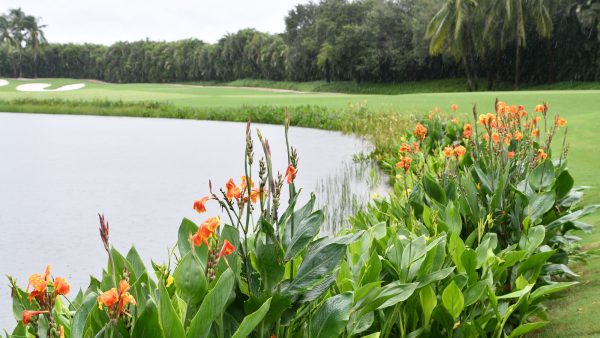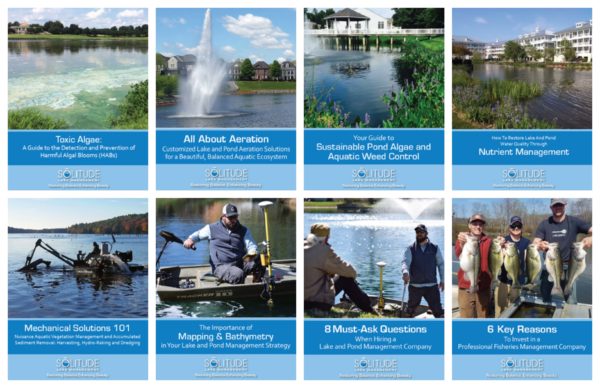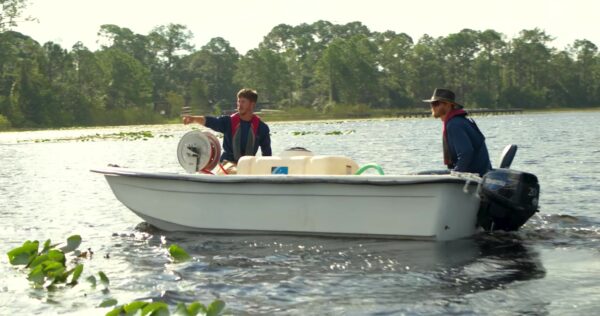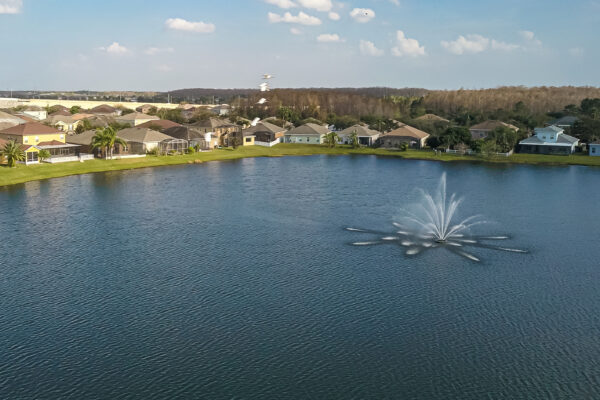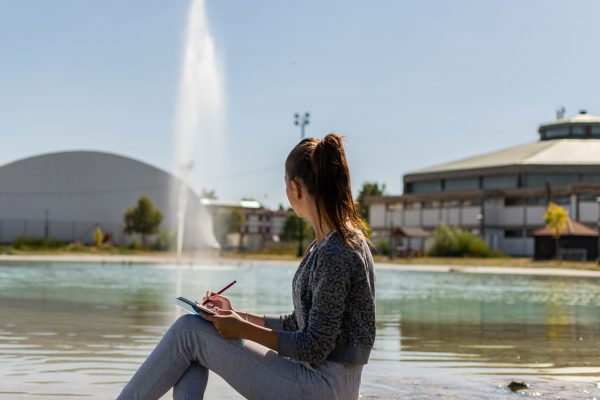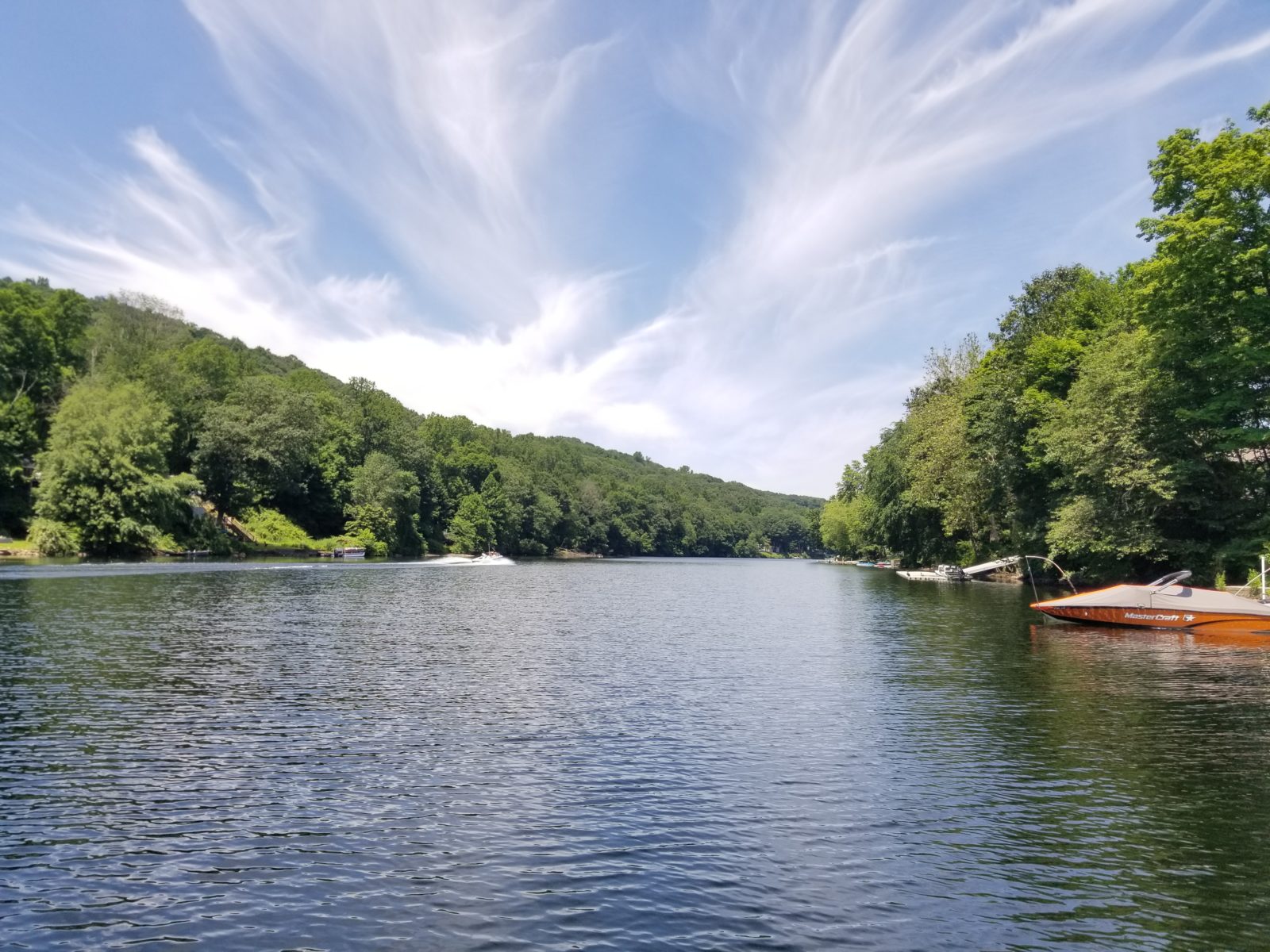My Education Versus Real World Experience in Lake and Pond Management
March 17th, 2015
By Derek Johnson, Lake Management Scientist, Fisheries & Wildlife Scientist, Certified Lake Manager
 While working through the Master of Lake Management program at SUNY Oneonta, I often thought about the work I was doing and how it would impact my future real world experiences.
While working through the Master of Lake Management program at SUNY Oneonta, I often thought about the work I was doing and how it would impact my future real world experiences.
I was one of four students in the charter class for the program under the guidance of Dr. Willard Harman, a seasoned veteran in the field of lake management and an excellent mentor. Otsego Lake was the backdrop for our studies as we worked alongside the well-qualified staff at the Biological Field Station in Cooperstown, New York. Dr. Harman’s intent for the program was to prepare us for careers as professional lake managers with the understanding that watershed and in-lake issues are a delicate balancing act. For my thesis, I wrote a comprehensive management plan for Panther Lake, a 131-acre fresh waterbody in Oswego County, New York. After countless hours of sampling, monitoring, and writing, it proved to be the most exhausting, yet most gratifying project and challenge I have ever faced. In May 2014, I made my way up to the stage to be hooded by Dr. Harman and it was then that I felt confident to go out into the field of lake management with my master’s degree and the prestigious title of Certified Lake Manager.
I was hired at SOLitude Lake Management shortly after completing the master’s program. It didn’t take long before I began to see similarities and differences between learning about lake management and actually experiencing it firsthand. One noticeable difference is the diversity of the waterbodies I work on each day. Working on fifteen to twenty ponds in a day with SOLitude has really shown me how vastly different two waterbodies, within the same region, can truly be. Another obvious difference is the diversity of species I run into each day. In New York, Panther Lake’s main issue of concern was Eurasian milfoil (Myriophyllum spicatum), an invasive species that is prominent in many waterbodies throughout that area. Since I started working with SOLitude, I have run into many different species of pond algae, aquatic macrophytes, and shoreline plant species. These differences have really helped to broaden my understanding of various lake issues and through extensive on-the-job training, are allowing me to become a more well-rounded lake management professional.
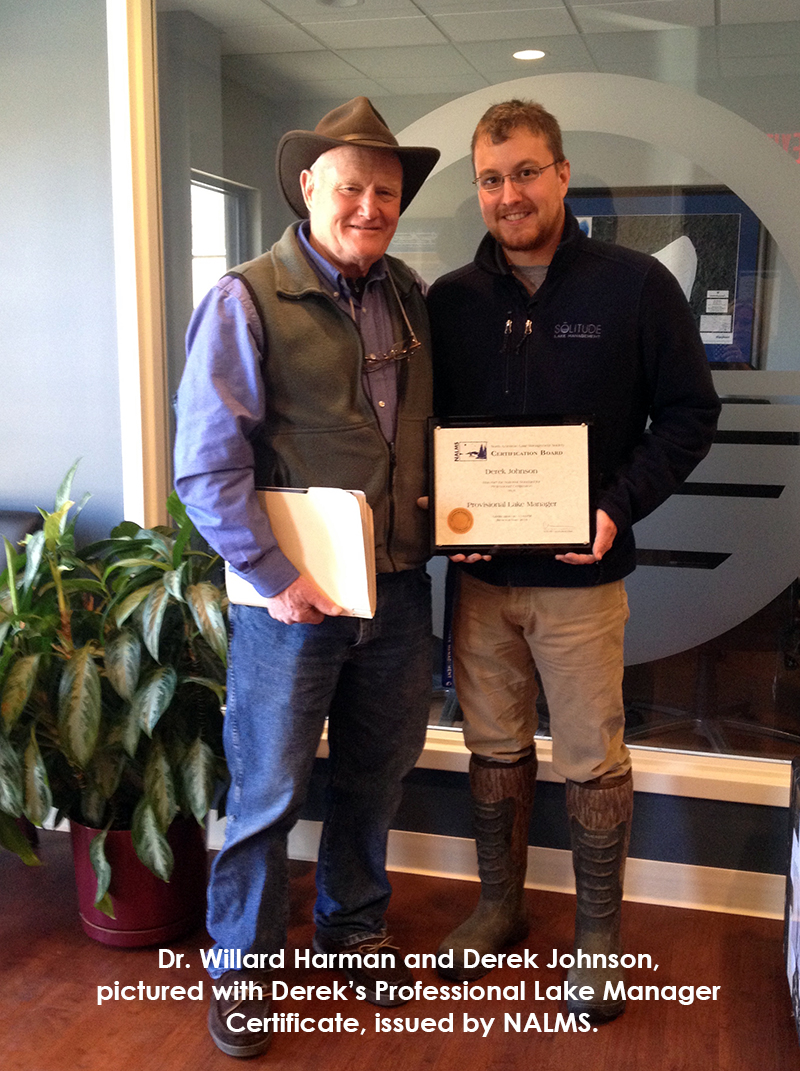 In both my current work experiences and throughout my schooling, I found that whether a lake is half an acre or 131 acres, there will always be similar concerns among the residents and land owners. Many of these concerns stem from nuisance algae and aquatic weeds causing aesthetic issues such as color of the water, taste and odor. However, some residents are simply curious about what types of fish and living organisms are in their lake or pond. Other similarities are the concerns that can arise when the use of aquatic herbicides are suggested as a control method. Using aquatic herbicides in ponds can have a negative connotation to some residents and pond managers, which mainly stems from a lack of knowledge about how they work. I have recently found many situations where the use of aquatic herbicides is not only cost effective, but can also be one of the most environmentally sound and effective ways to control a very serious problem.
In both my current work experiences and throughout my schooling, I found that whether a lake is half an acre or 131 acres, there will always be similar concerns among the residents and land owners. Many of these concerns stem from nuisance algae and aquatic weeds causing aesthetic issues such as color of the water, taste and odor. However, some residents are simply curious about what types of fish and living organisms are in their lake or pond. Other similarities are the concerns that can arise when the use of aquatic herbicides are suggested as a control method. Using aquatic herbicides in ponds can have a negative connotation to some residents and pond managers, which mainly stems from a lack of knowledge about how they work. I have recently found many situations where the use of aquatic herbicides is not only cost effective, but can also be one of the most environmentally sound and effective ways to control a very serious problem.
One sure thing that has followed me through school and my new career is the need for ponds and lakes to be managed by professionals. It can seem very overwhelming to identify and understand the biological interactions within a lake (algae, fish, etc.) and between a lake and its watershed without the help of trained professionals. It is very important that a lake manager has the experience and proven track record of investigating and properly controlling the various types of issues that may arise in a waterbody in the most environmentally sound way.
Having knowledge of the various regulations in each state is also imperative. Another important measure when selecting a pond management company is the capabilities of their equipment to address the problems in your lake. Having the proper technology and tools, such as bathymetric equipment that will accurately map the depths and sediment buildup in your waterbody, electrofishing equipment to assess the fish populations, and water testing tools that can be used to assess the water quality of your pond, are all essential for properly managing a lake or pond. I am happy to have found a company that truly understands all aspects of lake management and whose number one goal is to restore the ecological balance of our local freshwater resources.
Contact the experts at 888-480-5253 for all of your lake, pond and fisheries management needs.
Derek Johnson is a Lake Management Scientist, Fisheries & Wildlife Scientist and Certified Lake Manager with SOLitude Lake Management. Since 1998, SOLitude Lake Management has been committed to providing full service lake and pond management services that improve water quality, preserve natural resources, and reduce our environmental footprint. Services are available throughout the Eastern United States. Fisheries management consulting and aquatic products are available nationwide. Learn more about SOLitude Lake Management and purchase products at www.solitudelakemanagement.com.

